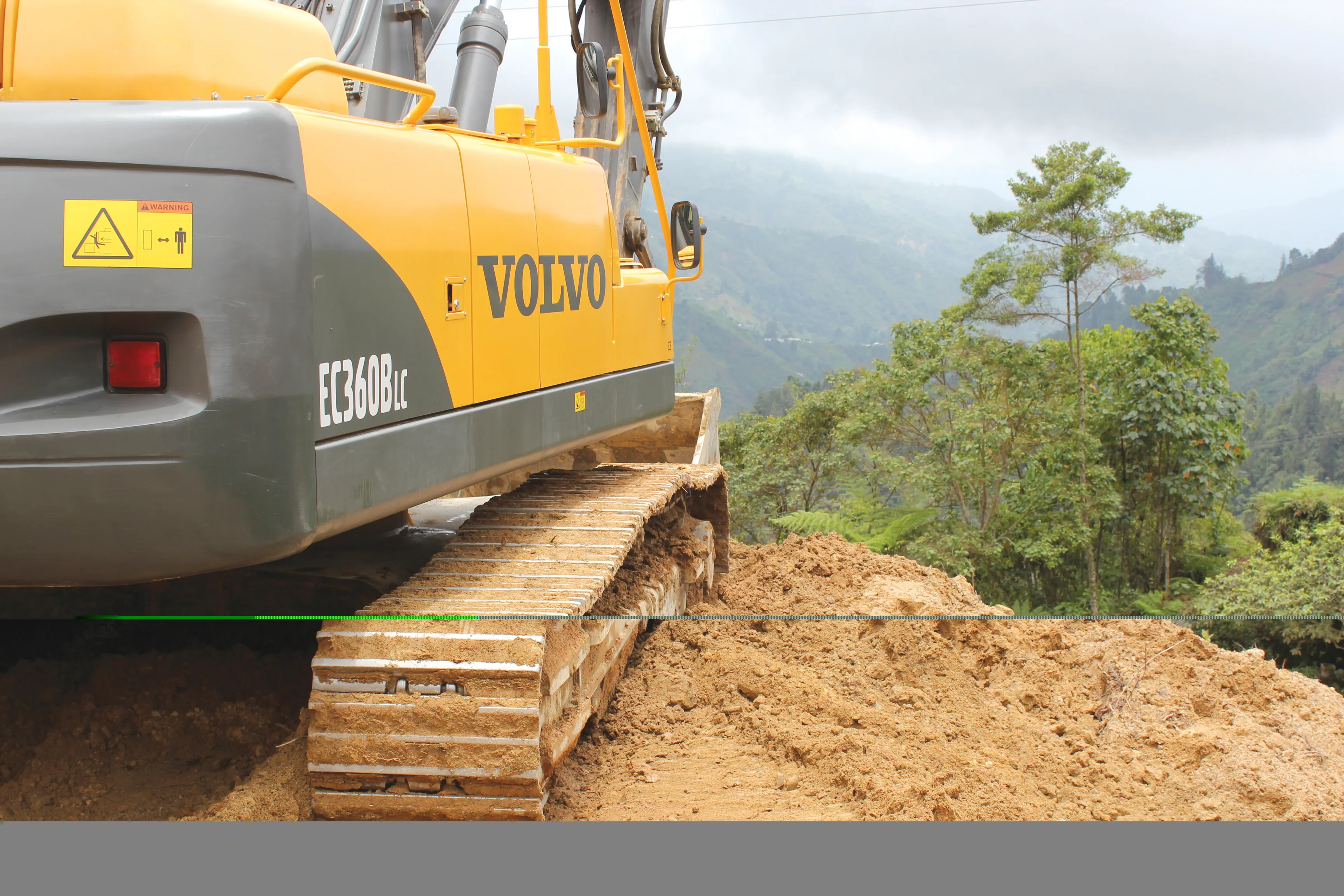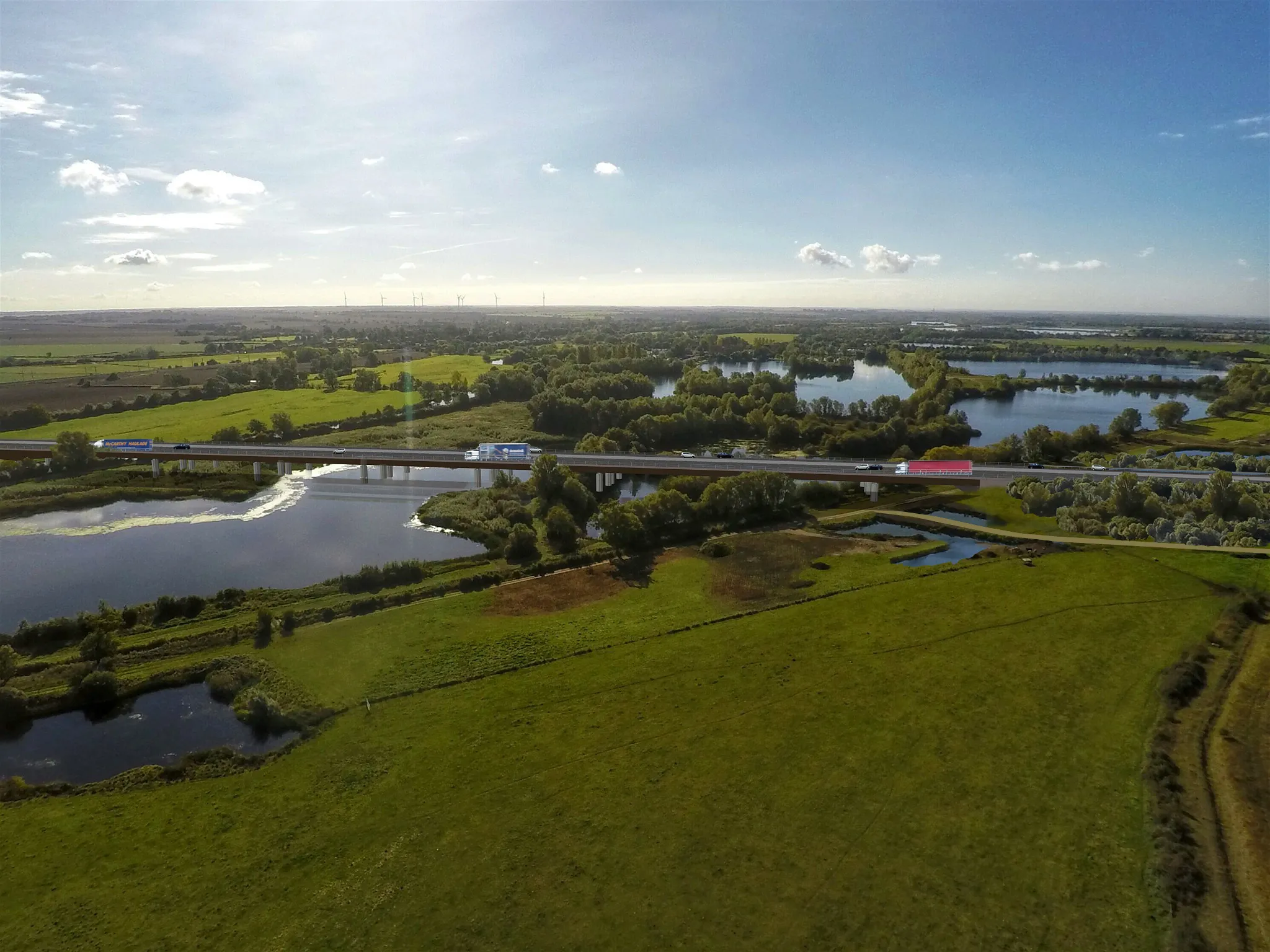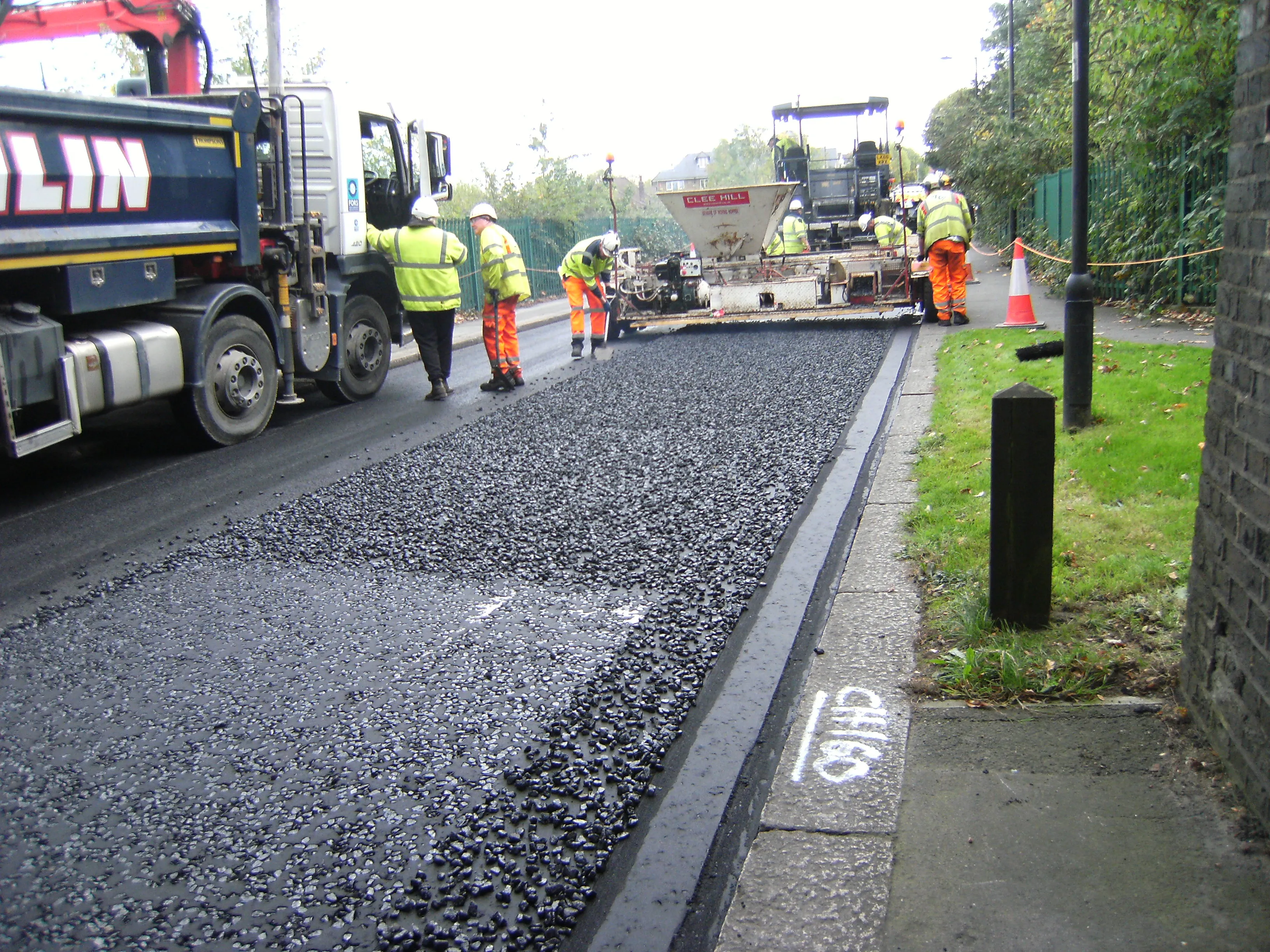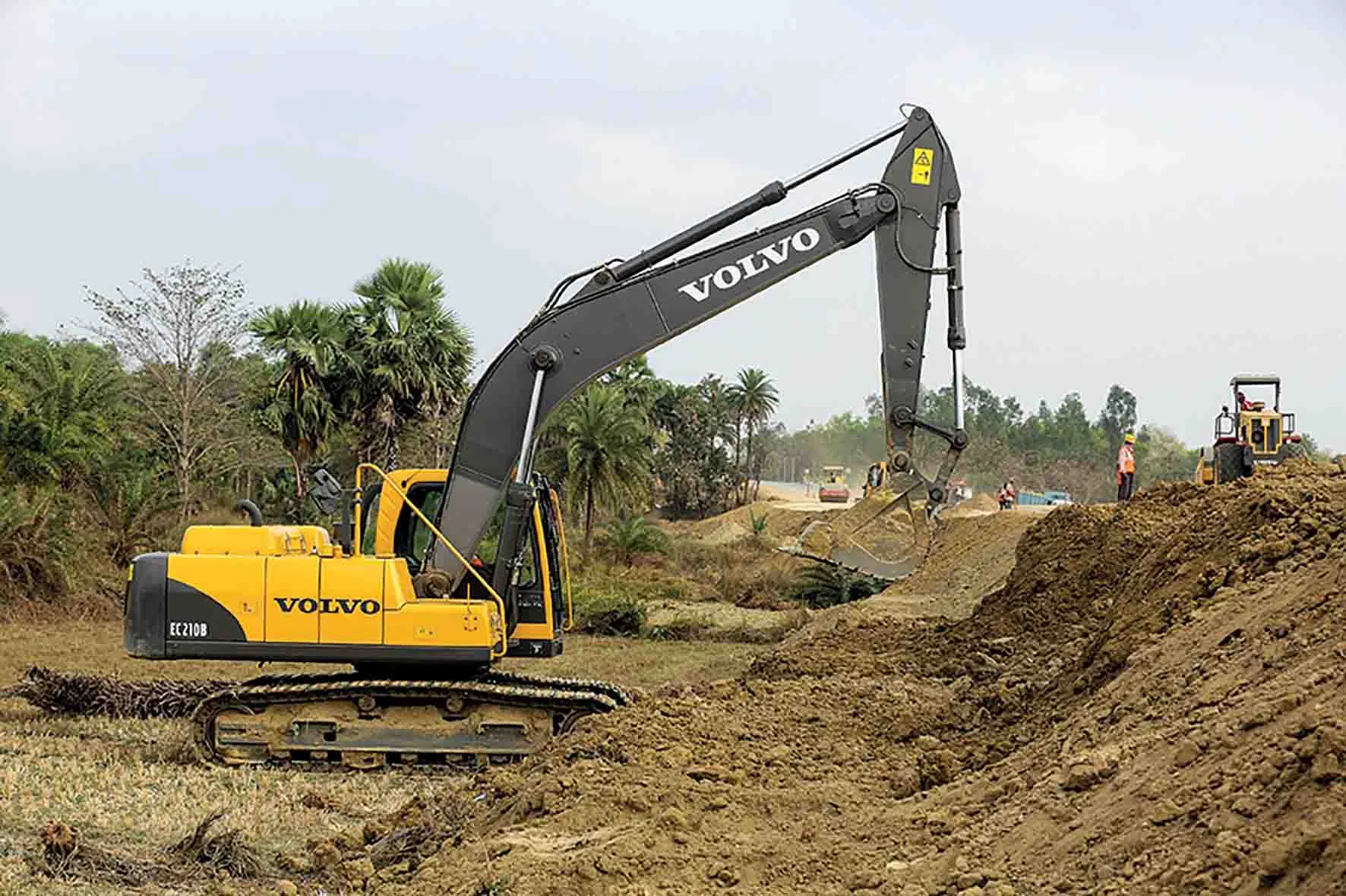Volvo Construction Equipment is working in some of the world’s most treacherous terrain to construct a high-speed road link across the Andes Mountains.
A fleet of 60 Volvo Construction Equipment (Volvo CE) road-building machines is being used to construct a 140km highway across the Andes Mountains, from Bucaramanga, Colombia’s eighth largest city, to Cucuta on the border – providing the country with a much-needed high-speed link with Venezuela. Tasked with this huge undertaking is innovative Colombian hi
August 20, 2013
Read time: 4 mins

Volvo Construction Equipment is working in some of the world’s most treacherous terrain to construct a high-speed road link across the Andes Mountains.
A fleet of 60 Volvo Construction Equipment (359 Volvo CE) road-building machines is being used to construct a 140km highway across the Andes Mountains, from Bucaramanga, Colombia’s eighth largest city, to Cucuta on the border – providing the country with a much-needed high-speed link with Venezuela. Tasked with this huge undertaking is innovative Colombian highway contractor MHC, a company with a long track record of overcoming huge civil engineering challenges – often in extremely hazardous conditions.
These dangers are not restricted to working in the mountainous terrain that is typical of Colombia’s topography, but also in areas where the country’s guerrilla groups are active. But neither peril has held the company back. Now into its fourth generation of family members, MHC has become one of the preeminent highway contractors in Colombia, with over 900 employees and US$600 million of contracts – and Volvo CE has been with them along the way.
MHC’s president Mario Huertas Cotes has been a supporter of Volvo CE since he first purchased six second-hand Volvo 861 haulers in 1982. Even though some may say they should now be museum pieces, these same machines from the 1970s are still working and have logged more than 60,000 hours. “We never get rid of equipment in Colombia,” said Huertas jokingly. “The trick is knowing where best to deploy machines as they age.”
As well as possessing a shrewd attitude to handling equipment, the firm is also adept at handling the sensitive issue of working in remote and potentially dangerous parts of the country. “Building in a conflict zone is not so difficult,” said Huertas defiantly. “You don’t beat these people [guerrilla groups] with bullets, but by providing better social conditions. The areas of Colombia where we operate are often poor, and we provide much-needed jobs and incomes, as well as buying local resources. We are regarded by the guerrillas as helping the people and are left alone.”
With the security situation in Colombia now much improved, the $400 million Andes highway project is just one of the many new construction contracts up for grabs – although it is certainly one of the most ambitious. The existing road between Bacaramanga and Cucuta is narrow, single-tracked, steep and extremely slow-going, with average speeds of only 20km per hour. But when completed, speeds will rise to as much as 80km per hour.
As if building 140km of highway weren’t challenging enough, altitudes range from 900m above sea level up to 3,600m. The steepness of the road will need to be reduced to a maximum incline of 7.5% (currently it is up to 18%) and the road levelled out. This will shorten the present route by 20km – and reduce travel times from Bucaramanga to Cucuta from today’s six hours to just two-and-a-half hours.
MHC has taken full responsibility for the design and construction management of the highway, including all bridges and tunnels – a job made harder by the need to keep the existing road open throughout the build. Several of the bridges are long span – four are over 120m, while one is 640m with columns 80m high, making it one of the tallest in the country. The remaining eight bridges range from 40 to 100m in length – there are also over 1,000m of tunnels being constructed. At its peak MHC will have up to 1,700 people working at the site (there are currently 400). More than 350,000m³ of earth has to be moved per kilometre of road, making this an enormous earthmoving project. Stabilising the steep slopes of the road is also crucial, especially so in Colombia’s rainy climate where landslides are commonplace. These same slopes put heavy demands on the transmissions of construction equipment, and the high altitude requires adjustment in the treatment of the biodiesel (the use of biodiesel is a must for government projects). Fortunately, all MHC’s newer Volvos are protected by customer support agreements that require local Volvo dealer Chaneme to provide preventative maintenance, consumables and repairs, all conducted on site.
Huertas has managed his family company through some of the most difficult times in Colombia’s modern history. Now with a full order book and his 28-year-old son, Esteban, working as managing director for the Bucaramanga-Cucuta project, the company is moving into its eighth decade and fourth generation with great optimism.
A fleet of 60 Volvo Construction Equipment (
These dangers are not restricted to working in the mountainous terrain that is typical of Colombia’s topography, but also in areas where the country’s guerrilla groups are active. But neither peril has held the company back. Now into its fourth generation of family members, MHC has become one of the preeminent highway contractors in Colombia, with over 900 employees and US$600 million of contracts – and Volvo CE has been with them along the way.
MHC’s president Mario Huertas Cotes has been a supporter of Volvo CE since he first purchased six second-hand Volvo 861 haulers in 1982. Even though some may say they should now be museum pieces, these same machines from the 1970s are still working and have logged more than 60,000 hours. “We never get rid of equipment in Colombia,” said Huertas jokingly. “The trick is knowing where best to deploy machines as they age.”
As well as possessing a shrewd attitude to handling equipment, the firm is also adept at handling the sensitive issue of working in remote and potentially dangerous parts of the country. “Building in a conflict zone is not so difficult,” said Huertas defiantly. “You don’t beat these people [guerrilla groups] with bullets, but by providing better social conditions. The areas of Colombia where we operate are often poor, and we provide much-needed jobs and incomes, as well as buying local resources. We are regarded by the guerrillas as helping the people and are left alone.”
With the security situation in Colombia now much improved, the $400 million Andes highway project is just one of the many new construction contracts up for grabs – although it is certainly one of the most ambitious. The existing road between Bacaramanga and Cucuta is narrow, single-tracked, steep and extremely slow-going, with average speeds of only 20km per hour. But when completed, speeds will rise to as much as 80km per hour.
As if building 140km of highway weren’t challenging enough, altitudes range from 900m above sea level up to 3,600m. The steepness of the road will need to be reduced to a maximum incline of 7.5% (currently it is up to 18%) and the road levelled out. This will shorten the present route by 20km – and reduce travel times from Bucaramanga to Cucuta from today’s six hours to just two-and-a-half hours.
MHC has taken full responsibility for the design and construction management of the highway, including all bridges and tunnels – a job made harder by the need to keep the existing road open throughout the build. Several of the bridges are long span – four are over 120m, while one is 640m with columns 80m high, making it one of the tallest in the country. The remaining eight bridges range from 40 to 100m in length – there are also over 1,000m of tunnels being constructed. At its peak MHC will have up to 1,700 people working at the site (there are currently 400). More than 350,000m³ of earth has to be moved per kilometre of road, making this an enormous earthmoving project. Stabilising the steep slopes of the road is also crucial, especially so in Colombia’s rainy climate where landslides are commonplace. These same slopes put heavy demands on the transmissions of construction equipment, and the high altitude requires adjustment in the treatment of the biodiesel (the use of biodiesel is a must for government projects). Fortunately, all MHC’s newer Volvos are protected by customer support agreements that require local Volvo dealer Chaneme to provide preventative maintenance, consumables and repairs, all conducted on site.
Huertas has managed his family company through some of the most difficult times in Colombia’s modern history. Now with a full order book and his 28-year-old son, Esteban, working as managing director for the Bucaramanga-Cucuta project, the company is moving into its eighth decade and fourth generation with great optimism.









